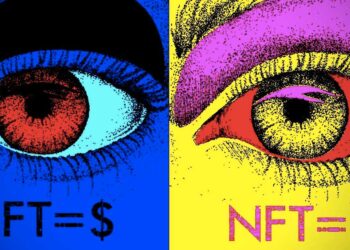As technology advances, it’s no surprise that artificial intelligence (AI) is entering the writing world.
AI text generation tools are becoming increasingly sophisticated, and capable of producing grammatically correct content and compelling and engaging content.
While this technology can potentially revolutionize the way we think about writing, it also raises some ethical concerns. As copywriters and content creators, it’s our responsibility to ensure that the content we produce is practical but also ethical and responsible.
In this article, we’ll explore the future of writing and how we can balance the benefits of AI text generation with our ethical responsibilities as writers.

We’ll examine this technology’s potential benefits and drawbacks and consider how to use it to enhance our writing while staying true to our values. So, in this paper, let’s dive in and explore the fascinating world of AI text generation and ethical responsibility.
Benefits and Drawbacks of AI Text Generation
AI text generation technology has its advantages and disadvantages. One of the main benefits is that it can save time and increase productivity.
AI text generation can produce a large volume of content quickly, which can be helpful for writers who are on tight deadlines or have a high volume of work. Additionally, AI text generation can help with writer’s block by providing ideas or inspiration for topics to write about.
However, there are also potential drawbacks to AI text generation.
One of the main concerns is that AI-generated content may need more creativity and human touch to produce engaging content.
Another concern is that AI-generated content may need more accuracy, particularly in areas where there is a need for in-depth research or analysis. Additionally, there is a risk that AI-generated content may be used to spread misinformation or propaganda, which can harm society.
Despite these concerns, AI text generation technology continues evolving and improving. As AI becomes more sophisticated, we’ll see more benefits and fewer drawbacks.
Ethical Concerns Regarding AI Text Generation
As writers, it’s essential to consider the ethical implications of using AI text generation technology.
One of the main concerns is that AI-generated content may be used to deceive or mislead readers. For example, some companies may use AI-generated content to create fake reviews or testimonials to promote their products or services. This type of behavior is unethical and can harm consumers.
Another ethical concern is that AI-generated content may be used to manipulate public opinion. For example, political campaigns or special interest groups may use AI-generated content to spread false or misleading information to sway voters or advance their agendas. This type of behavior is also unethical and can be harmful to democracy.
It’s essential for writers to be aware of these ethical concerns and to take steps to ensure that their content is honest and responsible.
This may involve using AI text generation technology responsibly and transparently and being honest with readers about how the content was produced.
AI Text Generation in Journalism and Its Impact on Media Ethics
AI text generation technology has the potential to revolutionize the field of journalism. With the ability to produce large volumes of content quickly and efficiently, AI text generation can help journalists cover breaking news and create more in-depth coverage of complex issues.
However, there are also concerns about the impact of AI-generated content on media ethics.
One concern is that AI-generated content may lack accuracy or may be biased.
For example, an AI-generated news article may rely on incomplete or inaccurate information or be written from a particular political or ideological perspective.
This type of content can harm the public’s trust in journalism and make it difficult for readers to distinguish between accurate and inaccurate information.
Another concern is that AI-generated content may be used to replace human journalists. While AI text generation can help produce routine or repetitive tasks, it cannot replace the human judgment and creativity needed for engaging and insightful journalism.
Relying too heavily on AI-generated content may lead to a decline in the quality of journalism and a loss of jobs for human journalists.
It’s essential for journalists to be aware of these concerns and to use AI text generation technology responsibly and transparently.
This may involve using AI-generated content as a starting point for further reporting and analysis and being honest with readers about how the content was produced.

AI Text Generation in Marketing and Its Impact on Advertising Ethics
AI text generation technology is also being used in marketing and advertising. With the ability to produce large volumes of content quickly and efficiently, AI text generation can help marketers promote their products or services more effectively.
However, there are also concerns about the impact of AI-generated content on advertising ethics.
One concern is that AI-generated content may be used to deceive or mislead consumers.
For example, companies may use AI-generated content to create fake reviews or testimonials to promote their products or services. This type of content is unethical and can harm consumers.
Another concern is that AI-generated content may target vulnerable populations, such as children or people with mental health issues.
For example, a company may use AI-generated content to create ads that exploit people’s fears or insecurities to sell products or services. This type of behavior is also unethical and can be harmful to society.
It’s essential for marketers to be aware of these concerns and to use AI text generation technology responsibly and transparently. This may involve using AI-generated content to supplement human-generated content and being honest with consumers about how the content was produced.
AI Text Generation in Academia and Its Impact on Academic Integrity
AI text generation technology is also being used in the field of academia. With the ability to produce large volumes of content quickly and efficiently, AI text generation can help academics create more effective research papers and other scholarly works.
However, there are also concerns about the impact of AI-generated content on academic integrity.
One concern is that AI-generated content may be used to plagiarise or otherwise violate academic integrity standards. For example, a student may use AI-generated content to produce a research paper without properly citing the sources of the information. This behavior is unethical and can harm the reputation of academic institutions.
Another concern is that AI-generated content may be used to mass-produce low-quality research papers or other scholarly works.
It’s essential for academics to be aware of these concerns and to use AI text generation technology responsibly and transparently. This may involve using AI-generated content to supplement human-generated content and being honest with readers about how the content was produced.
Balancing AI Technology with Ethical Responsibility
As writers, it’s essential to balance the benefits of AI text generation with our ethical responsibilities.
This may involve using AI text generation technology responsibly and transparently and being honest with readers about how the content was produced. It may also include using AI-generated content as a starting point for further reporting and analysis and ensuring the content is accurate and unbiased.
One strategy for balancing AI technology with ethical responsibility is to involve human oversight in the content production process. For example, an editor or writer may review AI-generated content to ensure it meets ethical and quality standards. This can help ensure the content is accurate, engaging, and moral.
Another strategy is to use AI text generation technology to enhance human creativity and judgment rather than replace it. For example, an AI-generated article may be a starting point for further reporting and analysis, allowing the writer to use their creativity and judgment to produce a genuinely engaging and insightful piece of content.
Also read: Why is Artificial Intelligence the Future of Growth?
Strategies for Ethical AI Text Generation
There are several strategies that writers and content creators can use to ensure that their use of AI text-generation technology is ethical and responsible.
One strategy is to be transparent with readers about the content’s production. This can involve disclosing that the content was generated by AI technology and explaining how the technology was used in the content production process.
Another strategy is to use AI-generated content as a starting point for further reporting and analysis. This helps ensure the content is accurate and unbiased and helps enhance the writer’s creativity and judgment.
Finally, ensuring that AI-generated content is accurate and of high quality is essential. This may involve using human oversight to review and edit the content or using AI technology to improve the accuracy and quality of the content.
Future Developments in AI Text Generation and Their Potential Impact on Ethical Responsibility
As AI text generation technology evolves and improves, we’ll likely see more benefits and fewer drawbacks. For example, AI technology may enhance writers’ creativity and judgment rather than replace them.
Additionally, AI technology may produce more accurate and unbiased content, reducing the risk of spreading misinformation or propaganda
However, there are concerns about the potential misuse of AI’s next-generation technology. For example, AI-generated content may be used to create deep fake videos or other forms of manipulated media. This type of behavior is unethical and can be harmful to society.
It’s important for writers and content creators to be aware of these developments and to use AI text-generation technology responsibly and transparently. This may involve staying current with the latest developments in AI technology and being willing to adapt and change as needed to ensure that our use of AI technology is ethical and responsible.
Conclusion
While AI text generation technology can revolutionize how we think about writing, it raises ethical concerns. How can writers balance the benefits of AI text generation with their responsibilities? benefits raise ethical concerns.
As writers and content creators, it’s our responsibility to ensure that the content we produce is practical but also ethical and responsible. By balancing the benefits of AI text generation with our moral obligations, we can use this technology to enhance our writing while still staying true to our values.













